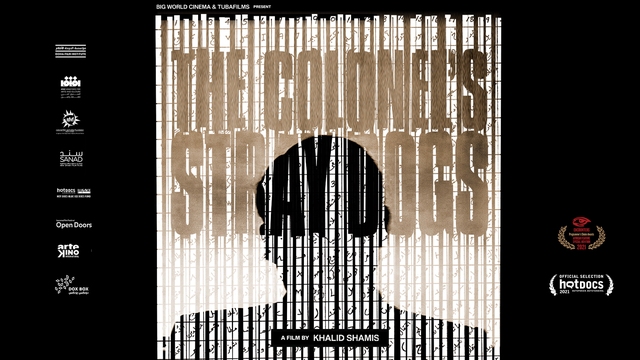The Producers

Khalid Shamis - Director/Producer/Editor
Khalid Shamis has over 15 years of hard graft in the South African documentary landscape as
a filmmaker with a strong leaning as an editor. London born, to a Libyan father and a Capetonian mother, Khalid studied film language in London and rose the ranks as a promo director in the satellite television realm blasting made-for-TV pop content from the West
into the Arab world.
Realising his predicament, and wishing to fulfil a dream to explore the life and legacy of his maternal grandfather, Khalid relocated to Cape Town in the mid 2000s. The film was made to some acclaim and the rest is on IMDB. What isn’t is that he has carved out a fruitful career on the continent as an editor and is dedicated to the pedagogy of independent filmmaking and story construction in Africa, teaching and consulting in and outside film institutions and organised frameworks. Khalid’s second feature documentary.
Making The Film

Director's Statement
The Colonel’s Stray Dogs is an uncovering of the modern history of Libya, and the after effects of the void left by the dictator, by a man whose sole objective, for most of my life, was the eradication of Colonel Muammar Gadaffi. I grew up in London negotiating my mixed heritages and my Englishness while my father led a dangerous double life negotiating his own dreams of return to Libya through clandestine armed struggle. This inherently created a gap in my understanding of what Libya and home actually meant for my father. The dream, for a moment at the end of 2011, became a reality and when Gadaffi was overthrown and killed, my father went back to help build the new country. My instinct was to capture and tell the story of exile, home, revolution and return and in the process reconnect with a past that was held from me as a child.
What my father showed me shook me as I discovered years of resistance that survived the analogue age into the digital world of satellite television, blogs, website exposés and cell phone revolutions. Many years of underground intelligence from an exiled Muslim Brotherhood inspired Nationalist opposition movement, international collusion, assassinations, attempted coups, multiple passports, pseudonyms, submachine gun brochures, pan Islamic-pan Arab cross culturalism, the general and specific spaces of exile, the deeply political, the deeply personal.
Extremely rich material to a filmmaker surrounded by access and incredible archive and a son wanting an excuse to have a real conversation with a father whose heart was always in Libya and whose mind was always occupied with the idea of home.
 For over 40 years Ashur Shamis was Colonel Gaddafi’s enemy number one, in exile with a $1m bounty on his head. After the 2011 revolution Ashur returned home to a hero's welcome, but found a land vastly different to the one he left. As Libya slipped into civil war he found himself exiled once again. Ashur's son explores his father's dangerous past and questions the choices his father made to inherit the mess Gaddafi left.
For over 40 years Ashur Shamis was Colonel Gaddafi’s enemy number one, in exile with a $1m bounty on his head. After the 2011 revolution Ashur returned home to a hero's welcome, but found a land vastly different to the one he left. As Libya slipped into civil war he found himself exiled once again. Ashur's son explores his father's dangerous past and questions the choices his father made to inherit the mess Gaddafi left.
 Hot Docs 2021 | Official Selection
Hot Docs 2021 | Official Selection
 Encounters Film Festival | Special Mention | Programmers Choice Awards
Encounters Film Festival | Special Mention | Programmers Choice Awards







